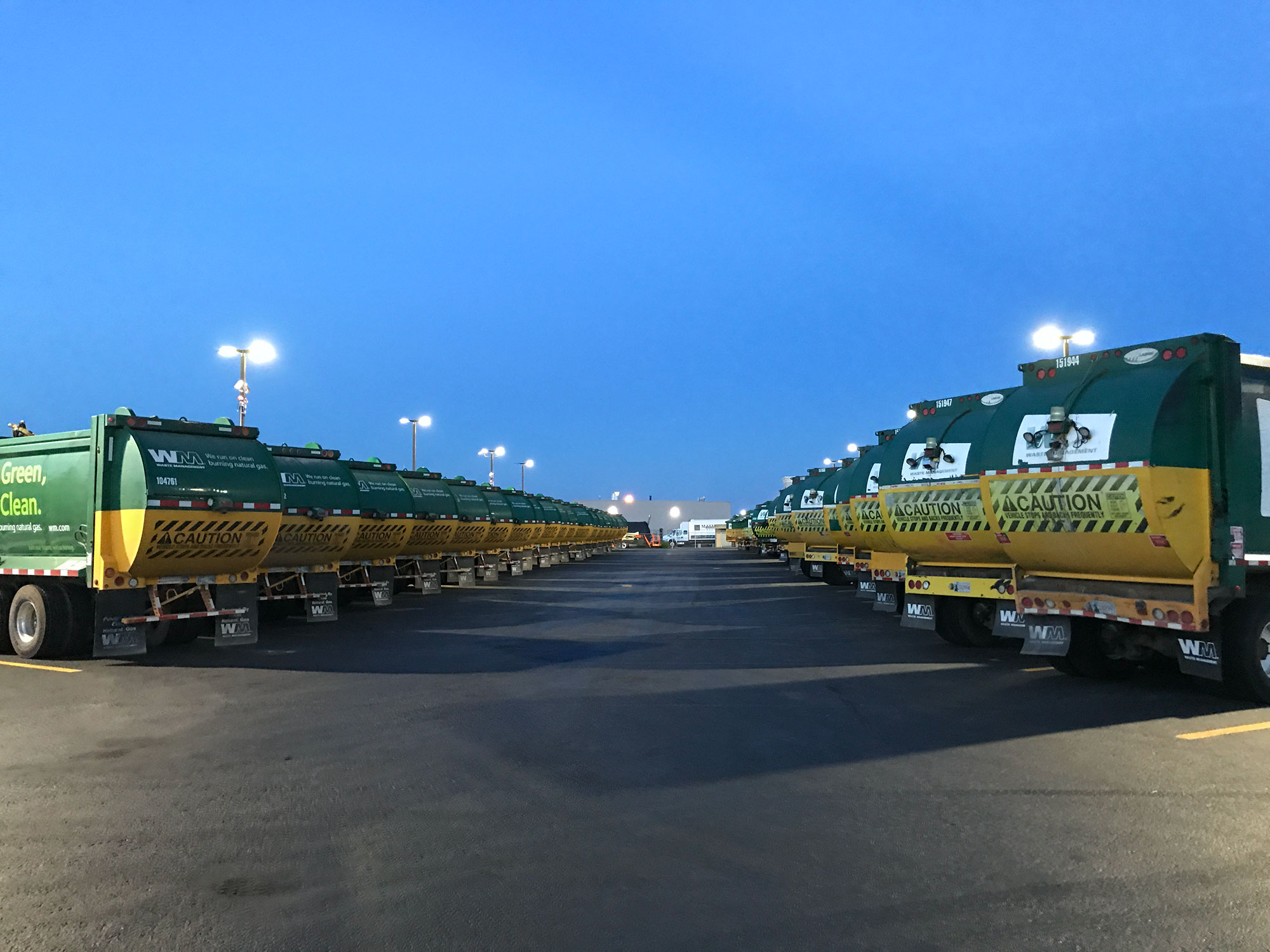
- Sustainability A-Z
- Public Policy
Public Policy
WM is subject to extensive and evolving federal, state, provincial and local laws and regulations concerning environmental protection, health, safety, land use, zoning and transportation. These laws and regulations are administered by the Environmental Protection Agency, Environment and Climate Change Canada, and various other federal, state, provincial and local agencies. Additionally, jurisdictions are increasingly taking action to reduce Greenhouse Gas (GHG) emissions through a broad range of climate policies. As such, we actively seek opportunities to engage in public policy discussion in cooperation with agencies, nongovernmental organizations and environmental stakeholders.
Stakeholder Engagement
In light of regulatory and business developments related to concerns about climate change, we have identified strategic business opportunities to provide our public and private sector customers with sustainable solutions intended to reduce their carbon footprint. As part of our ongoing marketing evaluations, we assess customer demand for and opportunities to develop new waste services. These services, such as waste reduction, increased recycling, composting and conversion of landfill gas and discarded materials into renewable energy, are developed with the potential to avoid lifecycle emissions. We use carbon lifecycle assessment tools to evaluate potential new services and to establish the value proposition that makes us attractive as an environmental service provider. We actively support public policies that encourage the development and use of lower-carbon energy and waste services that can lower lifecycle carbon footprints. We understand the importance of broad stakeholder engagement in these endeavors and actively seek opportunities for public policy discussion on more sustainable materials management practices. In addition, we work with stakeholders at the federal, state and provincial levels in support of legislation that encourages production and use of renewable, low-carbon fuels and electricity.
Participation in policy discussions supplements our dialogue at the local level and ensures that we are working with stakeholders from many perspectives. Each year, we give dozens of presentations on topics involving recycling, waste reduction, renewable energy and fuel, and civic engagement. Our employees are also enriched by broad interaction with stakeholders and informed dialogue on key issues like materials management, renewable energy, climate change and adaptation, responsible governance, conservation and a host of other topics.
Public Policy Overseas
To ensure compliance with domestic and international law, WM has adopted an Anti-Bribery Policy and established a Foreign Corrupt Practices Act (FCPA) Compliance Committee. All employees involved in foreign business projects must receive FCPA training. In addition, the WM Code of Conduct includes a section on doing business internationally to ensure our compliance with local laws as well as U.S. laws that govern our activities in international markets.
Stances on Key Policy Issues
Several policy issues represent significant challenges for our industry and are areas of special focus for WM. WM’s public policy team coordinates our policy positions on topics across the country while also recognizing the local nature of our business. Regional policy and regulatory variations are considered and coordinated with broader corporate policies. For WM’s most up-to-date information related to our stance on policy issues, please refer to the most current annual financial reporting and our Participation in the Political Proces document.